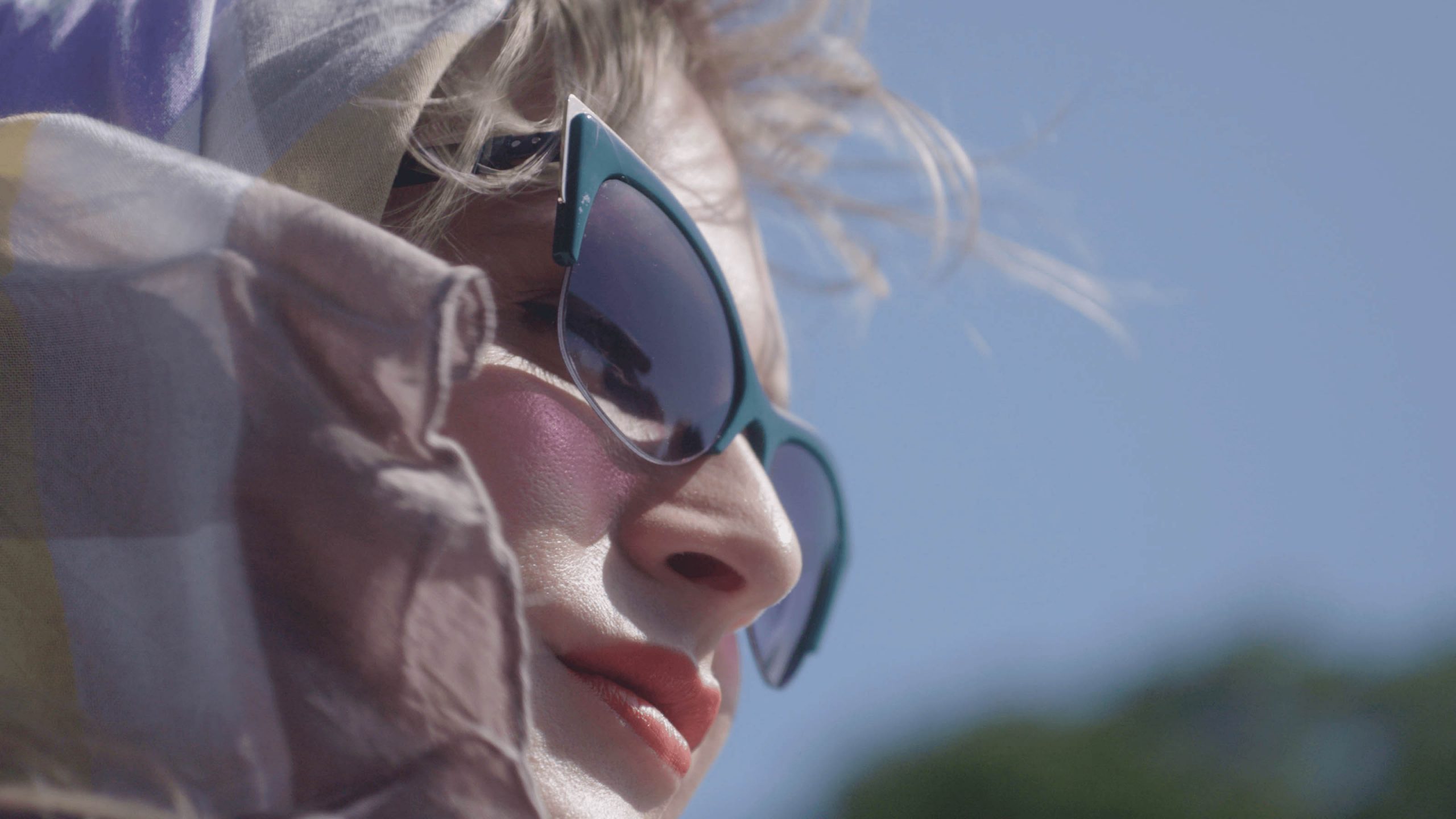
Framing Agnes is a unique introduction to transgender history as the film brings Harold Garfinkel’s gender health research to the screen.
The feature film expands on the short by bringing on additional cast members. To say that the film is unique would not be an understatement. They utilize Garfinkel’s UCLA transcripts by presenting it in a form of a talk show. Meanwhile, the documentary takes us behind the scenes by talking with the cast members about the people they’re portraying in addition to their own lives. For example, Katie Couric’s invasive interviews with Carmen Carrera and Laverne Cox comes up during a conversation. You should never ever ask a transgender person about their genitals!
While Agnes (Zakary Drucker) is the main focus, she is not the only one. Until the files were opened in 2017, it was long thought that she was the only person interested in gender-affirming surgery. There’s Georgia (Angelica Ross), Barbara (Jen Richards), Denny (Silas Howard), Henry (Max Wolf Valerio), and Jimmy (Stephen Ira). Chase Joynt’s talk show host interviews all of them. One underlying theme of the film is how both medicine and media frame the transgender experience.
The cast is star-studded with transgender talent. This is how it needs to be when it comes to trans stories. Christine Jorgensen’s story is probably the biggest trans story of the 1950s. But since this point, some people have gone public in a big way. Others are just happy to get by passing without making a big deal out of it. While many in the media spotlight Caitlyn Jenner, she is not the only trans person and honestly, she is frequently turning her back on the community. Look at the current debate over transgender athletes (see Changing the Game on Hulu!) and how the topic is not escaping the news anytime soon.
Most interestingly, Agnes, the pseudonymized trans woman, completely drops off the record following the research study. While I came out as transgender in November 2015, I wasn’t as familiar with all these years of transgender history at the time. I’ve only come about such history by way of film and some Jewish-related books. It’s the trans filmmakers who are taking a lead and telling the stories that need to be told. This film is very experimental in nature unlike 2020’s Disclosure. Will it have a post-film festival life? I don’t know. However, the film’s future almost certainly lies in streaming instead of theatrical.
It’s one to say that Framing Agnes is Chase Joynt’s solo feature directorial debut but the film is a team effort. What I like about the film is that Joynt and Morgan M. Page’s script approaches the story in a similar way to what we saw in No Ordinary Man. This time around, they utilize the talk show format rather than using the audition process. I’m familiar with the approach because of the short film in 2019 so I already knew that it blurred a line between narrative and documentary. The approach works for some but not all, of course. It certainly works here for what it’s worth. Regardless of how the story is being told, it is important for trans filmmakers to be telling trans stories. We’ve seen what happens when transgender people aren’t the people telling these stories. Boys Don’t Cry ring a bell?
Framing Agnes is a unique but important contribution to on-screen transgender stories.
DIRECTOR: Chase Joynt
SCREENWRITERS: Chase Joynt and Morgan M. Page
CAST: Jules Gill-Peterson, Chase Joynt, Angelica Ross, Jen Richards, Max Wolf Valerio, Silas Howard, Stephen Ira, and Zackary Drucker
Framing Agnes holds its world premiere during the 2022 Sundance Film Festival in the NEXT program.
Please subscribe to Solzy at the Movies on Substack.



